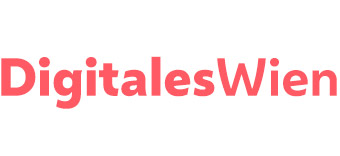A digital pilot and research project for playful rewards for climate-friendly behaviour.
The containment of the corona virus restricts both mobility and cultural activities. Therefore, the test phase of the culture token is suspended and the app “Culture token” is taken out of operation.
- Following an intense preparation phase by the team of CIO (Chief Information Officer) of the City of Vienna and Municipal Department 01 – Information Technology, Vienna‘s Executive City Councillor for Cultural Affairs Veronica Kaup-Hasler officially launched the development of the world‘s first “culture token” in spring 2019.
- This pilot project uses digital technology to reward environmentally friendly behaviour with free admission to cultural events.
- In exchange for actively reducing CO2 emissions by walking, cycling or using public transport, they receive a virtual token that they can exchange for tickets to renowned cultural institutions.
- The Research Institute for Cryptoeconomics of the Vienna University of Economics and Business (WU Wien) and the University Koblenz-Landau are involved to provide scientific support and evaluate the pilot project.
- Report: ”Kultur-Token Sustainable Business Model:Visualizing, Tokenizing, andRewarding Mobility Behavior in Vienna, Austria” – Research Institute for Cryptoeconomics, October 2020
- The app Kultur-Token is also concepted as a digital art project and is artistically designed. To reflect this, the City of Vienna worked with the institution “KÖR Kunst im öffentlichen Raum” (Public Art Vienna, www.koer.or.at) to appoint renowned street artist “Frau Isa” (www.frau-isa.com) as art director.
- The project is funded from the digitalisation and innovation budget of the City of Vienna.
- Project schedule: The test has been taking place in a closed test community (1,000 people) since February 26, 2020 and is currently paused. After restarting the test users can gain digital tokens by reducing CO2 emissions and exchange them for tickets to cultural events over six months, initially…
- Nine other cultural institutions have already announced their interest in participating in this pioneering project.


